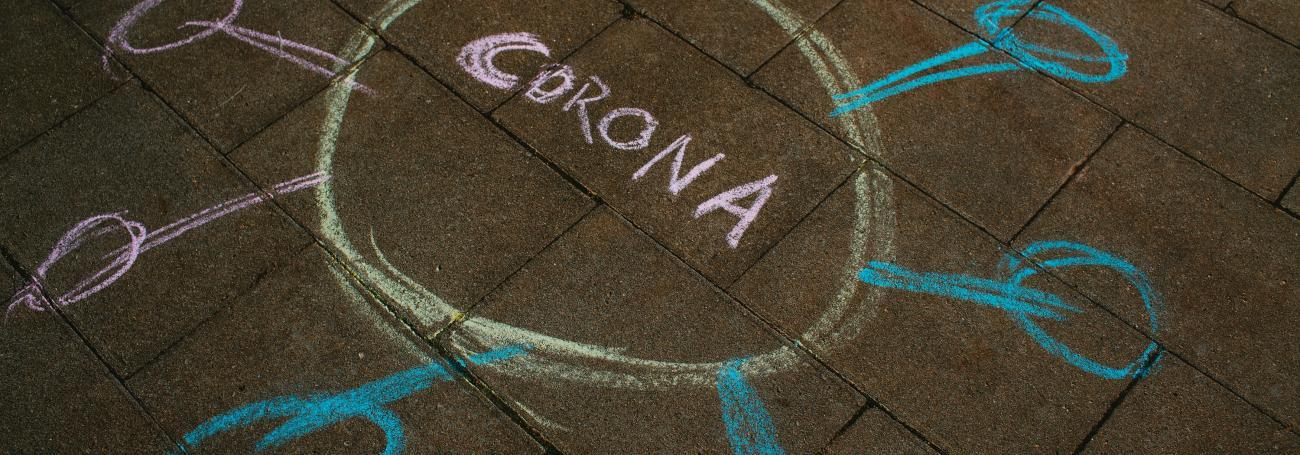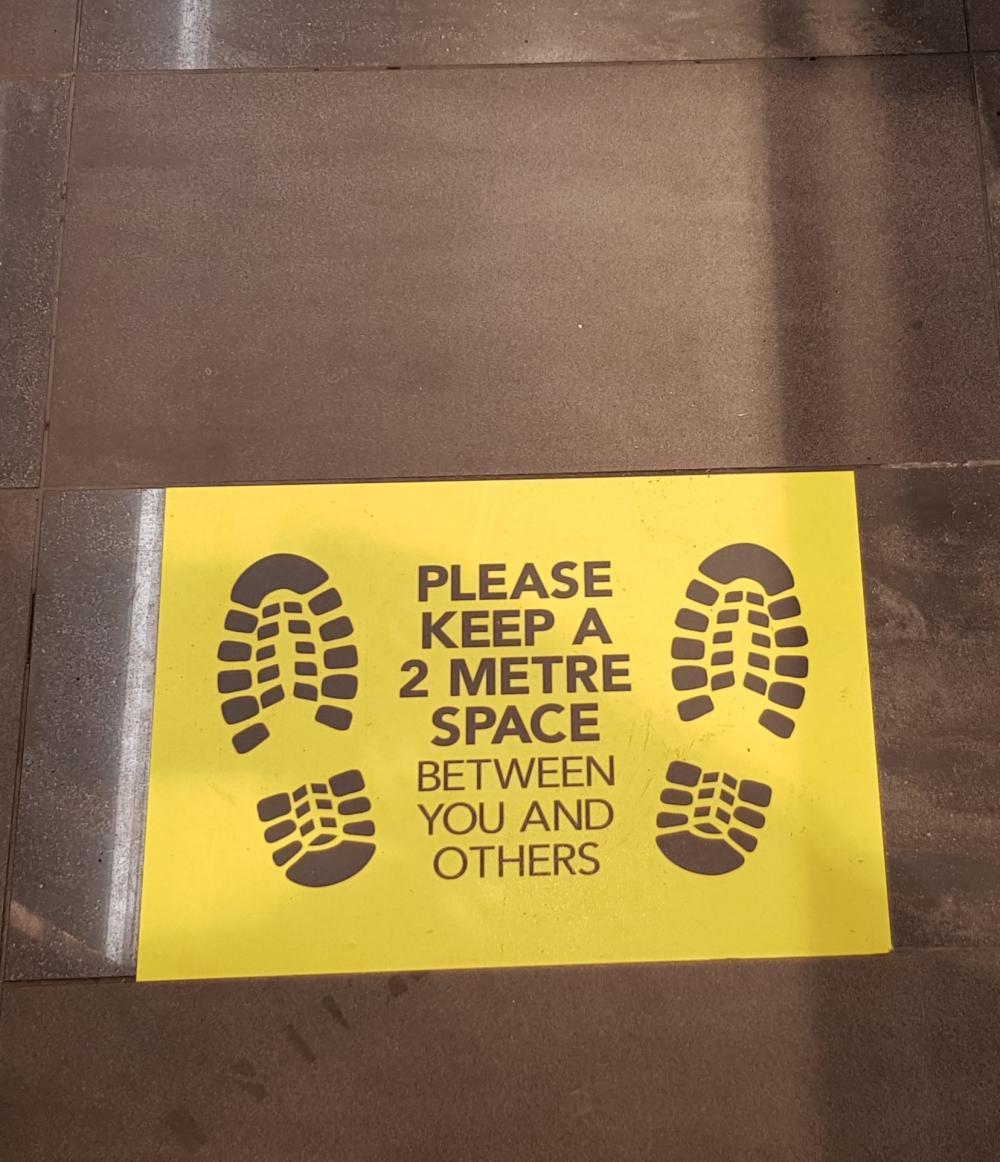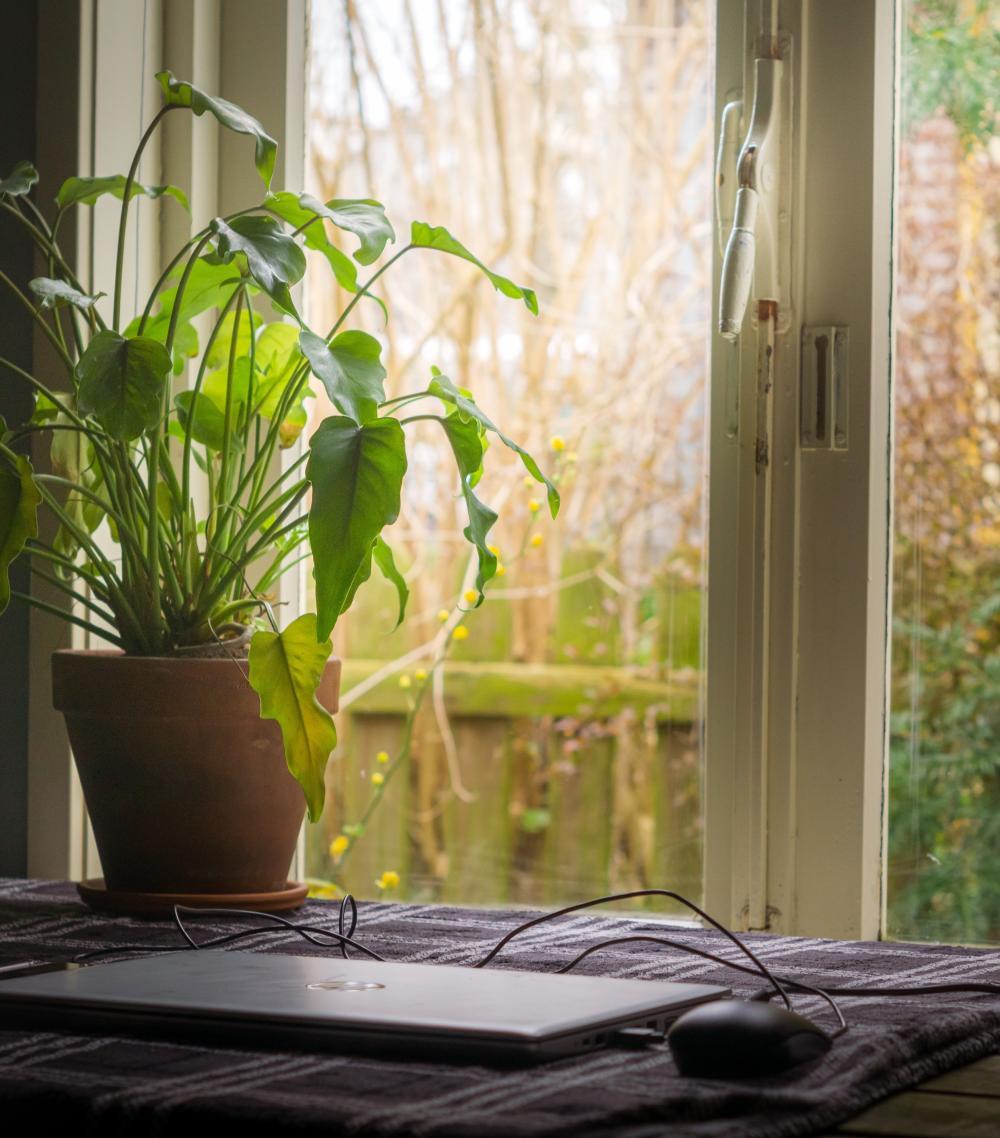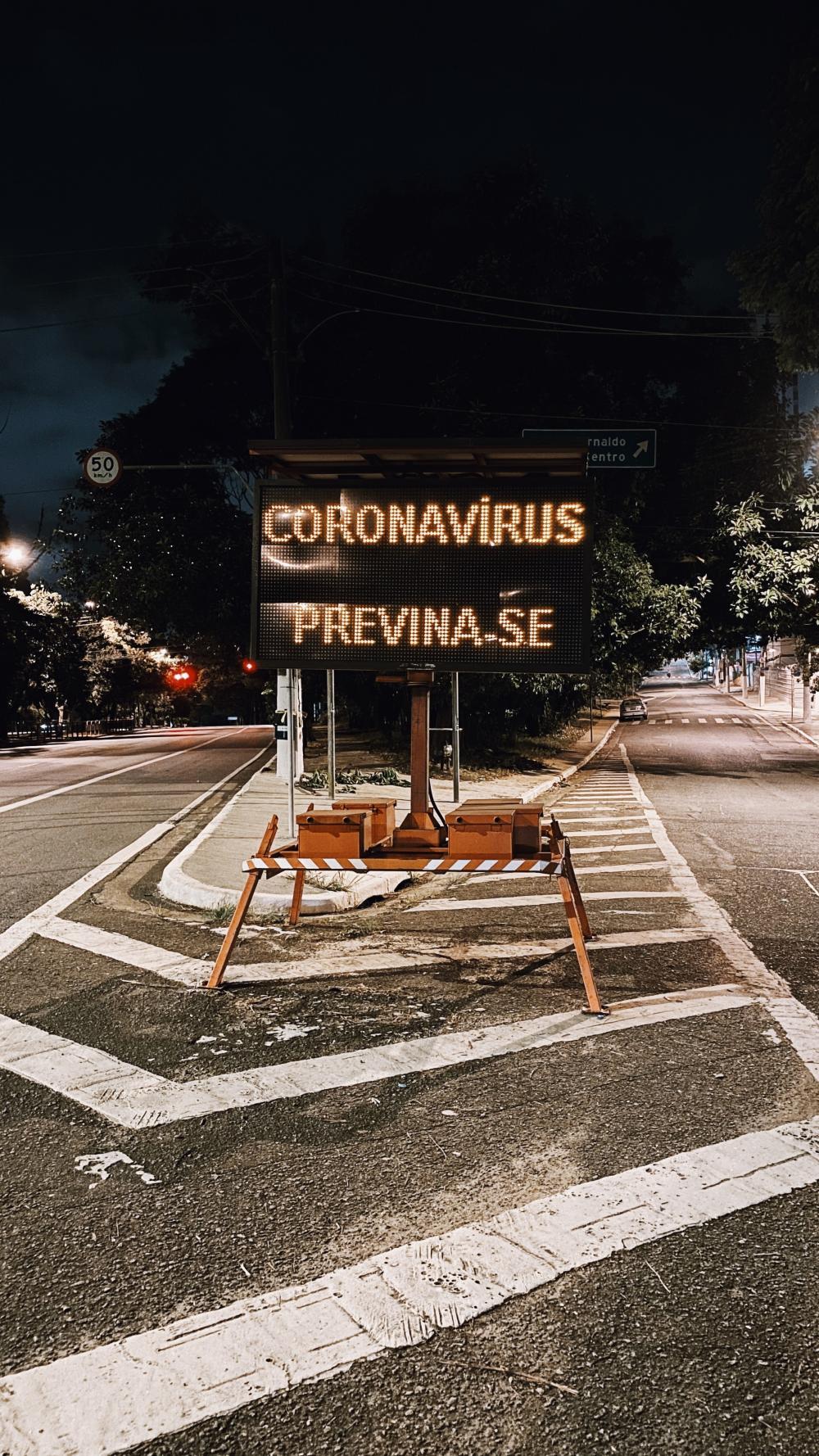

Justice and healing during the pandemic
A report from the second European meeting on restorative justice and COVID-19
by Ian Marder
On 4th May 2020, the Estonian Social Insurance Board and Dr. Ian Marder (Maynooth University, Department of Law) collaborated to organise the secondly monthly meeting of restorative justice services and practitioners across Europe to talk about their work in the context of COVID-19. Over 30 people from more than a dozen countries joined the conversation to discuss their experiences of delivering restorative justice and restorative practices online in recent weeks.

Delivering restorative justice online
The group first discussed facilitating restorative conferences and mediations online. Participants from Ireland, Finland, Estonia, the UK and the Netherlands reported either delivering cases online since the beginning of the pandemic, or that their services were gearing up for online practice. In Finland, for example, mediation providers are preparing to deliver cases remotely. Local services recently met to discuss issues like safety and confidentiality, as well as how to inform participants about the risks. They also consulted the Data Protection Commissioner and information security experts and wrote an online mediation process for Finland. This outlined procedures to conduct a suitability assessment for online mediation, as well as initiation, preparation, facilitation, and how to write the contracts online. Finnish mediators will soon be trained in the new process, and they will collect clients’ experiences of online mediation. The collection of practitioner and client experiences is a crucial task for restorative services and researchers at this time, so that we might learn from our experience and document what happens for the historical record. Indeed, Rule 66 of the 2018 Council of Europe Recommendation encourages restorative justice services to ‘allow and assist’ independent research on their services.
"Mediators who had delivered cases online overwhelmingly reported positive experiences."

Participants in this week’s meeting discussed how some of their colleagues felt more comfortable transitioning to online work than others did, although mediators who had delivered cases online overwhelmingly reported positive experiences. Challenges were generally of a practical nature. For example, in Estonia, where they had conducted pre-mediation meetings online, clients were sometimes unable to find private spaces in their homes. One English participant raised concerns that online platforms were not necessarily suitable for persons in need of certain supports, such as those with intellectual disabilities, while one Dutch practitioner said that online cases generally required lengthier preparation and a more active approach to facilitation to ensure that everyone feels heard and understands fully the meaning behind each other’s comments.
That being said, participants also reported benefits to their use of online technologies. In England, one person reported using Zoom to host a national meeting of their organisation’s ambassadors that would not have been possible to organise face-to-face. Likewise, they found that it had been easier to involve specialist support persons in online preparation, who did not normally have time to travel to such meetings.
Several participants also reported surprise at how comfortable they had found their clients and trainees were to opening up online. They wondered if, for some, an online setting allowed them to feel safer than if they were face-to-face. One Irish mediator described an online case between family members who were uncertain about a face-to-face meeting, but had successfully come to an agreement online. Still, they questioned whether online platforms enabled the transformation of hearts and minds in the same way as face-to-face meetings. That the online dispute resolution literature focuses so much on commercial contexts may be indicative of the types of conflict that are more easily to resolve remotely.
Indeed, participants reported that they were not always able to bring clients together online. In Northern Ireland, a restorative practitioner described a case in which the perpetrator maintained that meetings should take place face-to-face, leading to a pause in the proceedings to which the harmed parties agreed. Another participant noted that English service providers were still trying to keep in touch with clients, many of whom felt frustrated by delays given their desire to express themselves about the harm they suffered. The group wondered if the crisis could trigger feelings about living on the periphery and noted that clients appreciated contact, even if their cases were delayed. One Israeli mediation NGO continued providing a service to the public by establishing a telephone hotline. Citizens could ask for mediation or for tools to deal with conflict in their home, such as coaching. Israeli services had recently held a national conversation on the ethics of online mediation and the online ‘space’ (including, for example, the private chat function). Interestingly, they were also running simulations to train mediators in remote practices, helping overcome the barriers to training caused by this pandemic. Certainly, delivering new practitioner training online is an issue on which the restorative field would benefit from international cooperation.
The group also heard from a researcher in Australia whose team had begun to collect information about how restorative justice services were using technology to adapt to the current conditions. They aim to discover whether the current crisis acts to sideline restorative justice, or if it provides an opportunity for restorative justice to move front and centre of the social response. They noted that similar conversations were taking place on other continents, and that it was crucial to share internationally the principles of best (or new) practice. They also shared insights from research on virtual court hearings: whereas restorative practitioners were concerned that online meetings were less intimate than face-to-face, some people experienced online court proceedings as more intimate than face-to-face. This reflected the reality that, to operate effectively, online hearings needed to mirror some features of restorative justice practice, including by starting with parties introducing themselves, outlining a structure to the meeting and allowing time for silence. Online hearings also ‘flattened’ the hierarchical structure of courtrooms because all parties appear next to each other on the screen, indicating a level of equality from which courts intentionally diverge.
This suggests that online meetings might not only permit respect for restorative justice principles to be effective – they may require respect for those principles. Likewise, it was noted that online meetings were particularly conducive to the circle process because people need to speak one at a time in order that anyone can be heard.
Supporting people online with restorative practices
Many participants were continuing to offer, or had begun offering, online support circles for their colleagues, students and clients. For example, academics from Irish and Dutch universities were running online support circles to check in with their students, helping them to make sense of the crisis and situate it within their curricula. These circles were motivated by concerns about student wellbeing and motivation, and the loss of a relationship between lecturers and their students.
In Estonia, the Social Insurance Board had run six support circles, each with between two and six young people referred by the police for breaking physical distancing regulations. Police referred people only on their second breach, meaning that participants in some circles did not know each other, although they were invited to bring family members and friends. Each session began with participants getting to know each other and using the ‘feelings scale’ to express how they were. Groups then discussed what happened to lead to the referral, how they felt about the virus and could avoid spreading it, what activities they could do from their homes, and what they took from the circles. Practitioners found that bringing up a set of ‘needs cards’ on the screen greatly helped the young people to concentrate and reflect on, and subsequently articulate, their needs.

The Estonians were also among those reporting using online circles to support practitioners. They now run regular sessions for their own colleagues, and for social workers, police officers and care home workers. In these sessions, participants are enabled to reflect on how the virus has affected their work and lives, what has been most difficult for them, and whether they have any additional needs. An Irish participant also described moving their community of practice online, noting that demand had increased for these sessions among local teachers, youth workers and others trained in restorative practice. Meetings had moved from monthly to weekly since the start of the crisis, and levels of engagement and the depth of conversations among the attendees had increased in recent weeks, suggesting that the group felt increasingly comfortable sharing their vulnerability. For example, while initial conversations focused on general challenges to their work, more recent meetings centred on supporting young people after a fatal stabbing and reflecting on the concept of self-worth and its implications for restorative practice. The practitioner noted that they would not necessarily return to exclusively face-to-face communities of practice after the pandemic so as to maintain the momentum they had built, and also that their group agreed to explore running online support circles for members of their local community in the coming weeks.
A key theme throughout the session was vulnerability. Our discussions raised the question: how might we support people who, during an online meeting, express very serious vulnerability (such as self-harm) or become overwhelmed with emotion? One Irish practitioner had designed a five-step online check in circle that services working with young people could use following traumatic incidents. The framework crucially required at least two facilitators per meeting, ideally who had already built a positive relationship with the young people. The multiple practitioners meant that, in one meeting, a facilitator could take a young person who became overwhelmed to a breakout room, while the other stayed with the larger group; the young person re-joined the group shortly thereafter. The facilitators told the group about this option beforehand and agreed that this was safer than if an overwhelmed person simply left. Another person noted their practice of checking in individually by phone with anyone who becomes distressed during online group meetings, and the importance of taking time to build relationships in advance of delving into difficult issues.
All change in criminal justice?
The group began to reflect on the broader challenges that COVID-19 presented to criminal justice and discuss how restorative services and practitioners might respond to these challenges. Over the two meetings, participants regularly alluded to issues around prisons, gender-based violence, youth work, policing and courts. A participant from England had contacted the relevant minister to emphasise the utility of the restorative policing approach and alternatives to prosecution for people who breached public health guidelines.
There was also ongoing work with people in custody. One Albanian NGO discussed a project they ran to teach conflict resolution and communication skills to minors in detention. Following a stop to prison visits, they recorded their sessions for distribution by prison staff. A Czech participant described a fascinating project in which people in custody were offered the opportunity to write letters to the public about coping with confinement. They had received over 100 letters and were publishing these on Facebook. Letters ranged from describing straightforward activities, to deep and philosophical reflections and insights on captivity. Similarly, one researcher was working with their local prison inspectorate to distribute journals among cocooning prisoners to enable them to express themselves and document their experiences of these measure.
The European Forum for Restorative Justice is also developing its online work. They continue to publish interviews with restorative practitioners for the #SolidarityOverDistance campaign in the Restorative Blog. They have also launched a call for stories and testimonials of restorative justice from people who have taken part in restorative justice.

Restorative justice and the transition to a post-pandemic world
Participants agreed to meet again in a month’s time to discuss the role of restorative justice and practice in the transition to a post-pandemic world. This requires our field to identify the needs that emerge from this transition, and to obtain insights as to how criminal justice and other areas have adapted, and will continue adapting. We should establish with whom and which fields might we collaborate, and where our skills and principles might add the most value.
In the criminal justice context, for example, what could be our role in reducing the criminalisation of unwanted or harmful behaviours during the crisis? Could we enable better access to justice in the context of backlogged courts by mediating many more cases than normal? Might restorative justice help reduce prison populations and support people in custody and their families? What of our role in supporting judges, prison officers and other criminal justice practitioners to reflect on and reconsider their practices more broadly? We should now establish precise goals on which we can cooperate to create tangible benefits and changes in our criminal justice system.
The next discussion will take place on Wednesday 10th June at 10:30 Ireland/12:30 Estonia, when the group will discuss the role of restorative justice and restorative practices in transitioning to a post-pandemic world.
The following resources may also be of interest:
- A report on the European restorative justice and COVID-19 group’s first meeting
- A Guardian article on community spirit during COVID-19
- The IIRP on RP and COVID-19
- A report from Dialogue Matters on delivering online meetings
- A Delphi study relating to COVID and criminal justice
- The Centre for Justice Innovation’s tracker of justice responses to COVID-19

